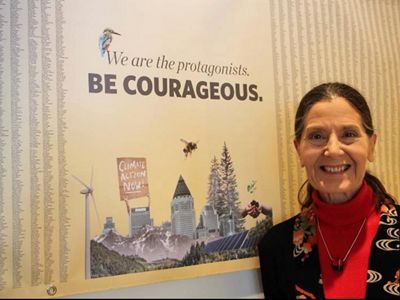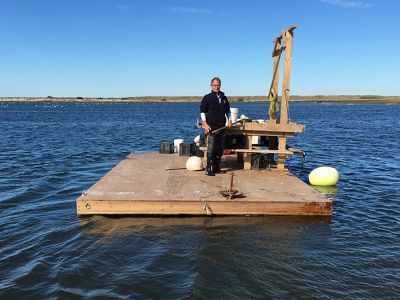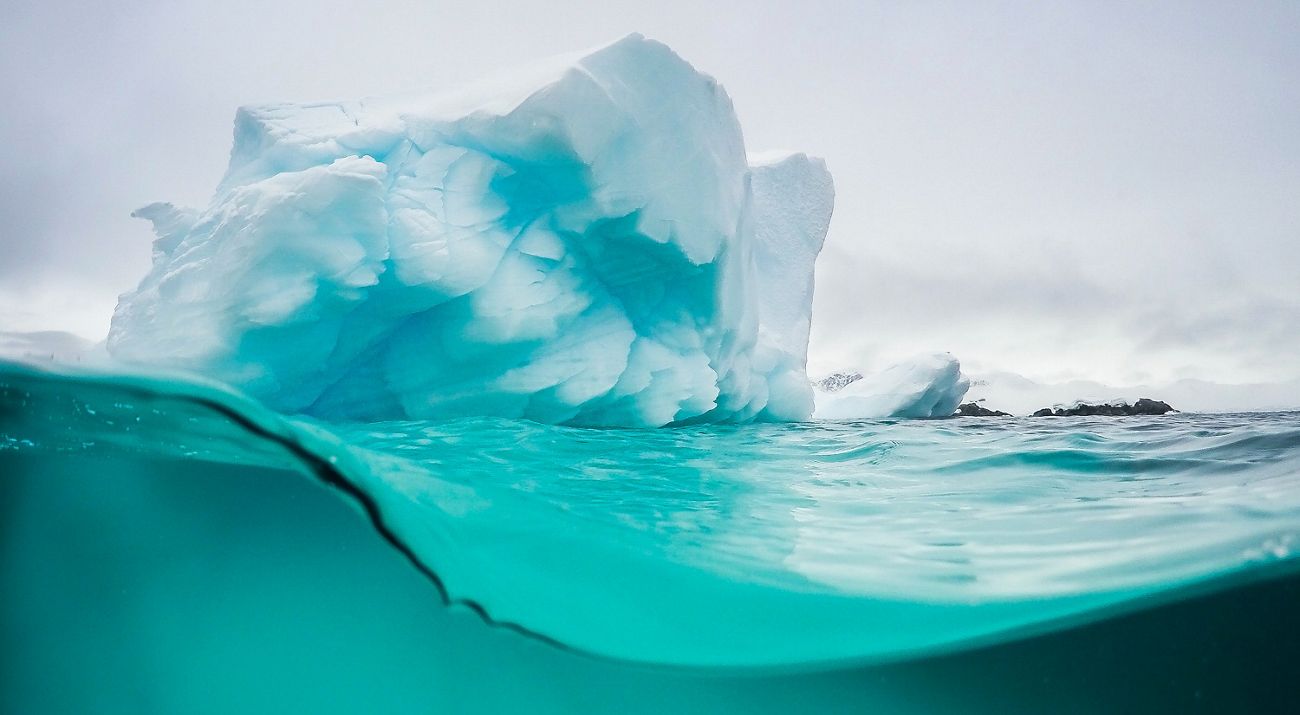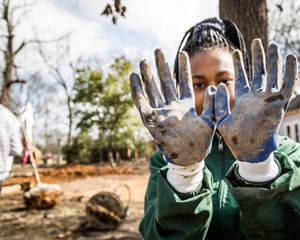4 Signs of Progress on Climate Action
We're building momentum for the climate movement around the world — and it's working.
Ready to speak up for nature?
Follow this guide on conservation issues and take steps to act for your planet.
5 things you can do nowYes, climate change is a planet-wide challenge. We have years, not decades, to address this threat. Tackling climate change is a massive undertaking and involves countless partners, communities, funders, governments, and businesses. Around the world, concerned people are coming together and using their collective voice to join The Nature Conservancy in calling for action.
Even better? We’re getting results.
Building momentum for the climate movement begins with individual people and individual actions.
Step by step, the little things add up to big change. Here’s how we’re doing it, and how your support helps.
1. We're Shaping Global Climate Action
It's been quite a start to the decade. The Covid-19 pandemic reminded many of us how important nature is for our health. The United States is back in the Paris Agreement, and emissions reductions are part of the country's nationally determined contribution (NDC). Climate change is front and center in the recovery response. The Nature Conservancy and our supporters have been front and center too, as tireless advocates for science-based solutions to help fight catastrophic climate change.
After a pause in 2020, we met with leaders from more than 190 countries at the global climate change conference known as COP26. Over two weeks, we discussed the most promising natural solutions for climate change—tackling everything from how to fund these critical priorities to hands-on science and specific policies that can make the biggest impact.
This conference built on the momentum of the 2019 United Nations Climate Summit, where more than 25,000 of our supporters sent a clear message to world leaders: We need real solutions now. We represented these champions with our banner of their names displayed proudly at our Climate Week events that brought together government, nonprofit, and private sector leaders and spelled out specific strategies for the world to seize in our Climate Playbook.
This commitment is more necessary now than ever before. People everywhere are counting on world leaders to act before it's too late.

2. We're Empowering Youth Climate Leaders
Young people are stepping up to the climate challenge more than ever. Greta Thunberg’s example shows us that the passion of youth leaders has the power to be a game-changer.
To help support young leaders, the Biennial of the Americas and The Nature Conservancy launched the Youth Congress for Sustainable Americas (YC) in 2017. The fast-growing network now includes 85 young leaders from 15 countries–from Canada to Argentina–united by their commitment to address climate change in their own communities.
The group launched the campaign #thevalueofnature to highlight the important role of nature in taking on climate change and achieving the goals of the Paris Agreement. They amplified youth voices through social media and included outreach events in five cities in Latin America: Buenos Aires, Bogotá, Mexico City, Lima and São Paulo. YC delegates met in Denver during the Biennial of the Americas in September 2019 to chart their 2020 plans. When they meet again, the value of nature will be even more obvious.
3. States Are Passing Climate Action Bills
Despite years of federal inaction on climate change, states across the U.S. continue to push movement forward on climate change solutions. The Nature Conservancy and our supporters helped usher in a wave of state policy wins in 2019 that demonstrate growing support for clean energy and action to address climate change. Some highlights:
- In New York, legislators approved the nation’s strongest climate bill, which requires the state to get all of its electricity from carbon-free energy sources by 2040 and achieve net zero greenhouse gas emissions by 2050.
- Washington passed a suite of climate change bills, including a requirement that 100% of the state's electricity come from clean energy sources by 2045.
- Nevada committed to generate 50% of its electricity from renewable resources by 2030 and aim for 100% carbon-free resources by 2050. Notably, the billed passed both bodies of the legislature unanimously, a strong show of bipartisan support.
- The Colorado legislature passed a sweeping package of climate and clean energy bills, including a plan to reduce state greenhouse gas emissions by 25% by 2026, 50% by 2030 and 90% by 2050.
- Maine passed legislation to reduce greenhouse gas emissions 80% and get 100% of its electric power from renewable sources by 2050.
It's time to talk about climate change
7 in 10 Americans believe climate change is happening. It's time to talk about it.
Get Your Guide4. We're Recruiting New and Unexpected Allies
We need all hands on deck to prevent catastrophic climate change. And its direct impacts are now energizing even more allies to come to the table and be part of the climate movement, determined to speak out.
Like the Shellfish Growers Climate Coalition, an unexpected force that’s partnering with The Nature Conservancy to make their voices heard. Why are they mobilizing? Because anywhere there’s a shoreline, you can find signs of climate change—sea level rise, ocean acidification, more frequent and severe storms. All of which are hitting home for shellfish growers’ small-town coastal communities and for their businesses.
In just a year, this coalition has grown from seven shellfish growers to more than 100 members, reaching from Alaska to Florida. They’re committed to starting a broader conversation about the urgent need for climate action. From visits on Capitol Hill to actions in their home states, they’re shining a light on how climate change is already affecting food production and ultimately threatens whether or not we will be able to feed our growing human population.

We know that when we stand together, we have the power to be a force for change. Each person who adds their voice helps us build strength and momentum for urgent climate action.
Be part of The Nature Conservancy's community of concerned individuals committed to tackling climate change. Download our Let's Talk Climate guide today, and help get the people you care about engaged.


